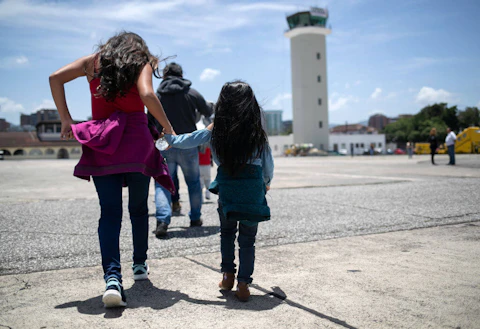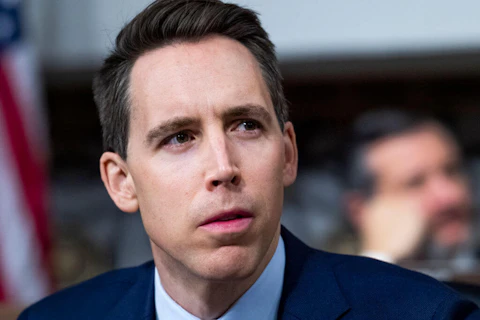In 2016, 15% of Americans said they felt like their vote wouldn’t make a difference.
About 100 million people did not vote in the 2016 presidential election. So how should people encourage others to head out to the polls in the 2020 presidential election? Actress Noemí González said using scorn or guilt isn’t helpful and that one vital way to reach out to nonvoters is to be compassionate.
RELATED: 54% of Latinos Have an Early Voting Plan, New Poll Shows
González, who will be co-starring in Netflix’s upcoming series “Selena,” said when reaching out to friends and family who are considering not voting, the main thing is to approach the situation with care and kindness, primarily because people have been struggling with so much this year.
“Right now, in these times, it has been a difficult year not even politically but health-wise,” González said in an interview with The Americano. “What we need is compassion more than anything. We need to be willing to meet each other. We need to be willing to see eye-to-eye and have intelligent conversations.”
González said it’s critical to understand where the other person is coming from and explain why voting is so important.
“It’s easy to be disenchanted,” she said. “It is easy to be hopeless, but now more than ever we need to feel empowered, and we need to use our voice, and we need to speak up not only for ourselves but for the entire community.”
A Pew Research report shows that 25% of people did not vote in 2016 because they didn’t agree with either presidential candidate. Another 15% said they felt like their vote wouldn’t make a difference. However, not voting helped President Donald Trump win. Analysts said undecided voters would likely be persuaded to vote at the last minute.
While González doesn’t push anyone to vote a certain way, she said she would be severely remiss if she didn’t speak up about voting out a person because of their toxicity and lack of leadership.
RELATED: How to Prepare for In-Person Voting If You Have COVID-19 Anxiety
“That is just not what you do with that position of power,” the California native said. “That position of power demands respect.”
Susquehanna University released a study that showed there are four types of nonvoters:
- Incapable (40%): The incapable nonvoter lies between the apathetic and obstructed nonvoter. The incapable nonvoter may be interested in the political process but is unable to vote due to personal reasons, such as not having transportation or having an illness on election day.
- Conditional (26%): The conditional nonvoter expresses an interest in the political process and has voted in past elections, but actively chooses not to participate in the most recent election due to dissatisfaction with or ignorance about the candidates.
- Apathetic (15%): Apathetic nonvoters lack any real interest in the political process, believing that electoral outcomes do not affect their own life. This person typifies the assumptions often made about those individuals who do not participate in elections.
- Obstructed (5%): The obstructed nonvoter holds a high level of interest in the political process and actively seeks to participate in elections. However, issues related to the integrity, reliability and/or accessibility of the electoral process (such as overly long lines or intimidation at the polls) effectively prevent them from casting a ballot.
González’s approach to reaching nonvoters by hearing them out and being sympathetic comes highly recommended. Experts say that listening to the other person and setting aside emotions is crucial for understanding why they’re considering not voting.
“When persuading individuals to vote, I would ask them to hear me out and be open to what I’m about to say,” González said. “I wouldn’t tell them that ‘I am here to change your mind’ or that ‘I’m here to tell you how to vote.'”
The UC Santa Barbara graduate said she would encourage people to meditate on their decisions or sleep on it, in order to have clarity about their choices.
“Voting, for me, means showing up and representing your voice,” González said, “and it’s not just your voice but the voice of the people.”





